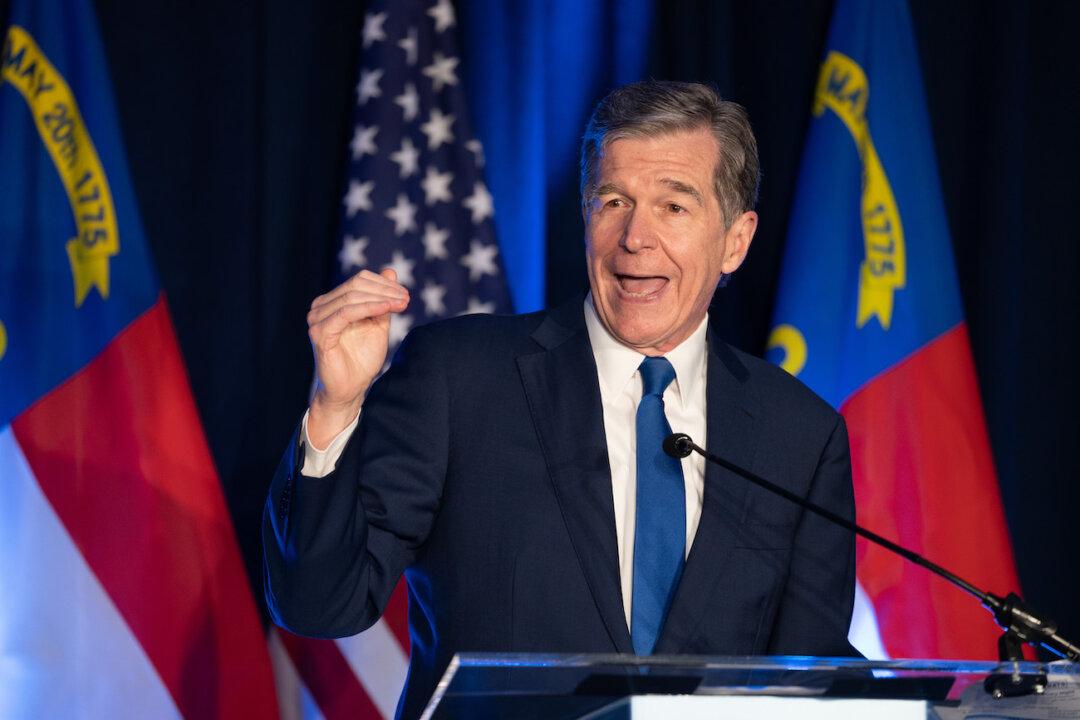Republican state lawmakers in North Carolina voted to override Democratic Gov. Roy Cooper’s veto against an election integrity bill, effectively enacting the measure.
In a series of votes, the GOP supermajorities in the state House and Senate overturned five of Mr. Cooper’s vetoes, two of which address elections and voting in the ninth-largest state—a likely 2024 battleground where statewide races have been generally close in recent years.





